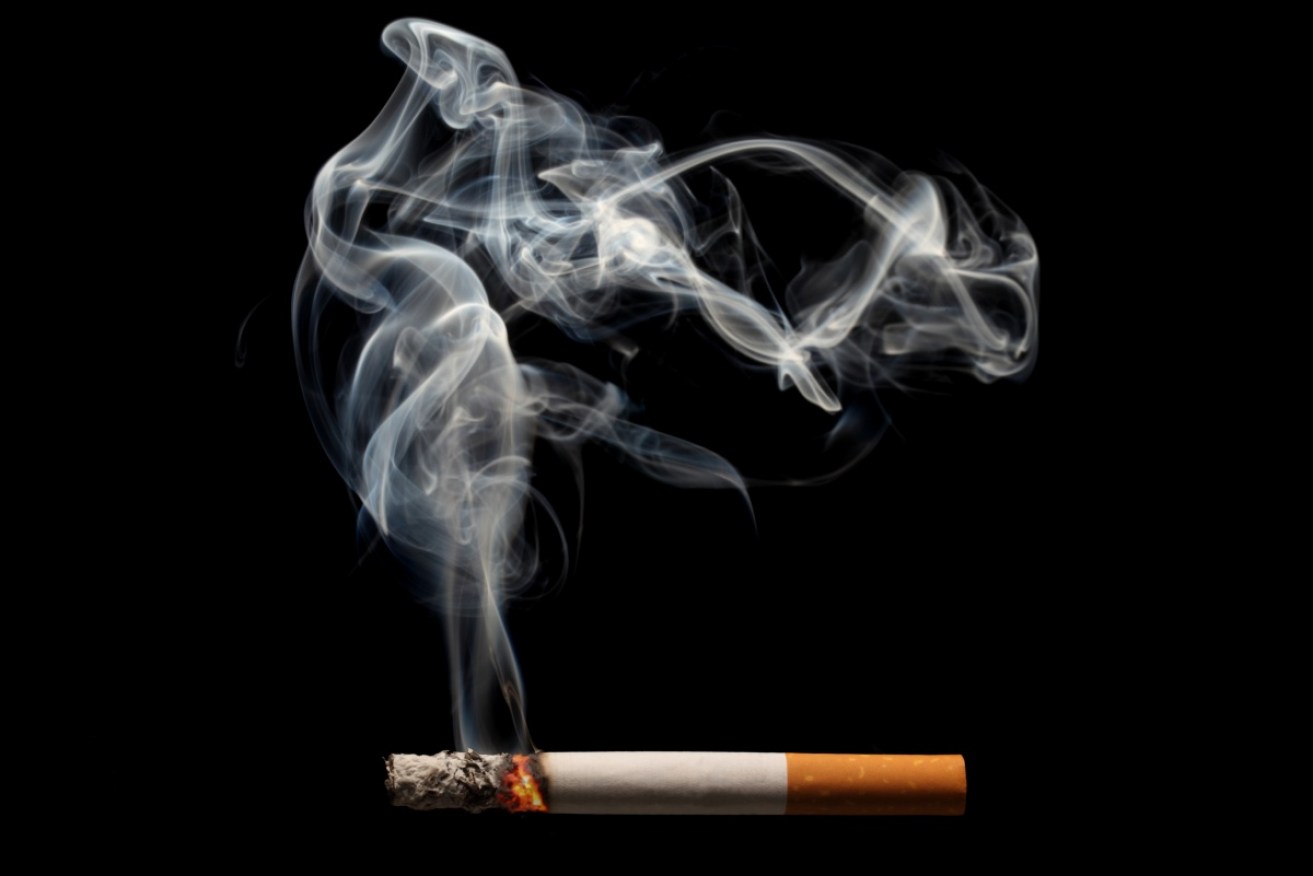Cancer-causing myths busted

Smoking is one of the biggest causes of cancer – and secondhand smoke is also a risk factor. Photo: Getty
What causes cancer? When British researchers asked this question they found that 35 to 40 percent of people were confused, mistakenly listing triggers such as genetically modified food and electromagnetic fields.
What about you? How savvy are you about the real culprits that cause cancer? Read on to separate fact from fiction:
Red and processed meat
“Research has found that processed meat is carcinogenic to humans, and red meat is probably cancer causing,” Cancer Council Australia chief executive Professor Sanchia Aranda said.
”Both are linked to colorectal cancer and the risk increases the more that you consume.”
For this reason, Cancer Council Australia recommends people limit their intake of foods such as salami and pastrami. To reduce risk of colorectal cancer, it also advises eating small (130 grams or less) serves of lean red meat no more than four times a week as part of a balanced diet that also includes plenty of fibre, fruit and vegetables.
VERDICT: Excessive processed meat intake strongly linked with increased bowel cancer risk
Secondhand smoke
Smoking is a widely accepted cause of cancer. But what about breathing in secondhand smoke, which has concentrated levels of unhealthy chemicals? While some research has not found a link, other studies show that breathing in secondhand smoke might contribute to lung cancer.
Regardless, smoking is one of the leading causes of cancer, so it is important to kick the habit, and a good idea to minimise your exposure to smoky environments. To get support to stop smoking, call Quitline (137 848).
VERDICT: Some evidence
Very hot drinks
Drinking your tea or coffee at super hot temperatures of 65 degrees or more might increase your risk of oesophageal cancer, research shows.
In 2016, The International Agency for Research on Cancer classified drinking very hot beverages as a probable carcinogen, meaning that it probably causes cancer.
VERDICT: Probably causes oesophageal cancer

Very hot drinks can raise your risks of oesophageal cancer. Photo: Getty
Alcohol
Sure you want that extra beer or chardonnay? “Many Australians still don’t realise that alcohol consumption contributes to cancer risk – in particular, cancers of the bowel, breast, mouth, throat, voice box, oesophagus and liver,” Professor Aranda said.
The more you drink, the greater the risk, according to Bowel Cancer Australia, which says that drinking two or more alcohol drinks a day significantly increases bowel cancer risk.
The National Health and Medical Research Council recommends no more than two standard drinks a day, plus several alcohol-free days each week.
VERDICT: Can cause cancer
Artificial sweeteners
“Scientific evidence suggests that artificial sweeteners found in diet-labelled drinks and some foods are unlikely to cause cancer,” Professor Aranda said.
“In Australia, Food Standards Australia New Zealand sets acceptable levels for all types of additives, including artificial sweeteners. These levels and the evidence is regularly reviewed and adjusted if required.”
VERDICT: Unlikely to cause cancer
Stress
“Studies that have looked at all kinds of cancer have found very little evidence for stress being an independent cancer cause,” Professor Aranda said.
However, stress might have indirect effects on a person’s health if it leads them to skip the gym or ditch a healthy diet. If this leads, in turn, to weight gain, then the risk of bowel, breast and other cancers might increase.
VERDICT: No direct link

Is it safe to eat microwaved food? Photo: Getty
Microwave ovens
Some people believe that microwave ovens make the food they cook radioactive.
“In fact, microwave ovens heat food by causing water molecules to vibrate,” Professor Aranda said.
“There are many different types of radiation. Microwaves, radio waves, and the light that we can see, are all examples of non-ionising radiation. The only non-ionising radiation that causes cancer is ultraviolet light, which comes from the sun.”
VERDICT: Does not cause cancer
Mobile phones
Cancer Council Australia said mobile phone use did not cause brain cancer but poses an “unknown carcinogenic risk” because of the presence of electromagnetic fields, which are classified as a probable carcinogen.
A 2011 review by the World Health Organisation found there is insufficient evidence linking mobile phone use with brain cancer and concluded more research was needed.
VERDICT: Does not cause brain cancer
Wearing a bra and using deodorant
These claims regularly do the rounds on email and social media but they are complete myths, according to experts.
“There is no scientific evidence that underwire bras can cause breast cancer by obstructing the lymph flow,” Professor Aranda said. “Nor is there evidence that aluminium in antiperspirants leads to breast cancer by clogging up lymph nodes or preventing toxins from being released through sweat.’
VERDICT: No evidence
Plastic bottles
Their environmental credibility is well and truly dashed. But, in health terms, plastic bottles do not leach cancer-causing chemicals.
“The water in plastic bottles is safe to drink even if they have been frozen, left in the car or re-used,” Professor Aranda said.
VERDICT: No evidence








